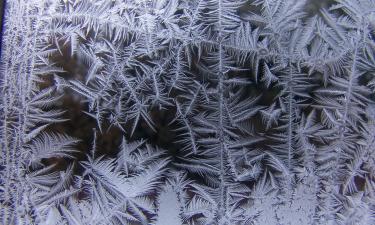American Mars Probes Outfitted with Russian Equipment
Russian nuclear center provided alpha sources for Mars probes
Alpha sources on the base of curium 244, produced by the Russian State Scientific Center of Nuclear Reactors Research Institute for space research (the Ulyanovsk region), are supposed to determine the composition of Mars's surface and to detect water on the Red Planet, if there is any. The press service of the research institute said, the results of the research would help scientists to make another step towards the mystery of life on Mars, and if it ever existed there. 
US space probes Spirit and Opportunity are outfitted with the mentioned alpha sources - the probes were launched on a mission to Mars on June 10th and July 8th from Florida. There were 120 alpha sources produced in total, each of them are the size of a small coin, they are covered with a thin layer of curium-244. Twelve of the sources (six for each probe) have been launched into space, the rest of them were used for tests.
The Institute had to deal with strict technical conditions: alpha-sources were supposed to stand the temperature ranging from minus 193 degrees to plus 1,000 degrees. In addition to it, alpha sources were supposed to work under the condition of vacuum," press service of the research institute said.
The work of alpha sources is based on the following principle: a source produces an alpha particle, which interacts with the ground rock and then produces a secondary proton particle. The number and the energy of protons will testify to the natural composition of Mars's surface.
The nuclear center of the Ulyanovsk region took part in such space research in 1997, when NASA was implementing a similar project. Mars was explored with a rover at that time, and the vehicle was equipped with Russian alpha sources too.
Subscribe to Pravda.Ru Telegram channel, Facebook, RSS!





